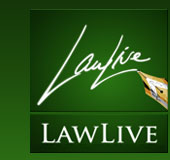"Thank you LawLive for a straight forward, easy to use system, friendly and efficient communications from your team and results that exceeded my expectations. I now have all of the legal documents for both my websites and the ability to subcontract my ever increasing projects list! Thank you so much!"

Residential Tenancy Agreement NSW
 |
|
| Document Type: | Microsoft Word |
| Build Time: | 8 Min |
| Rating: |     
|
| Plus 1 this Document: |
We also offer;
VIC/WA/SA/NT/ACT/TAS/QLD Tenancy Agreements
If you are leasing residential property in New South Wales, this is the statutory Residential Tenancy Agreement required to be completed. This Residential Tenancy Agreement may be registered at the Land Titles Office however registration is not mandatory.
In NSW there are statutory differences between the Residential Tenancy Agreement required for leases which are over 3 years and Residential Tenancy Agreements which are under 3 years, through the building process this document will determine the statutory requirements, thus you can use this Residential Tenancy Agreement regardless of the length of the lease.
This Residential Tenancy Agreement contains an option as to payment of a rental bond. A rental bond is a form of security for the landlord in case the tenant does not follow the terms of the agreement. Payment of a rental bond is not mandatory however it is common practice to ensure a commitment from the tenant and protection for the Landlord.
The amount of bond that is to be paid (if any) must be written into the Residential Tenancy Agreement. Money received as a deposit bond must be deposited with the NSW Office of Fair Trading within 7 days of receipt. A rental bond must be in the form of money and may not be provided as a guarantee.
Statutory Notes to this Residential Tenancy Agreement provide that:
- 1. The tenant is entitled to have time to read this Residential Tenancy Agreement (and the completed condition report referred to in this agreement) and to obtain appropriate advice if necessary.
- 2. The landlord or the landlord's agent must give the tenant a copy of the The Renting Guide: Your basic rights and responsibilities as a tenant, as published by the NSW Office of Fair Trading.
- 3. The landlord is required to give the tenant a copy of this Residential Tenancy Agreement for the tenant to keep.
This Residential Tenancy Agreement includes, as a mandatory attachment, a condition report. The notes set out in the lease include information about the condition report and guidance as to how it should be completed.
For more information about rental bonds including lodgement and claiming the bond back at the end of the lease - see the Department of Fair Trading website at Rental Bonds
Since 1 January 2008 stamp duty in New South Wales is payable only on specific types of leases - see the Office of State Revenue website at http://www.osr.nsw.gov.au
Information about Residential Tenancy Agreements
This agreement is in the form prescribed by the Residential Tenancies Regulations 2010 Clause 4(1). In particular it includes the following matters:
Term of agreement: the term may be fixed or indefinite; if the term is for more than 3 years then it must be registered at the Registrar General's office together with the Registrar's prescribed form. If the term is not fixed, legal advice should be obtained as to whether the agreement should be filed with the Registrar General.
Rental bond: if a bond is being paid, it must not exceed 4 weeks rent (Section 159 of the Act).
Urgent repairs: the telephone contact numbers for nominated trades (electrical, plumbing and other) must be provided in the agreement. The landlord agrees to pay the tenant, within 14 days after receiving written notice from the tenant, any reasonable costs (not exceeding $1,000) the tenant has incurred for making urgent repairs so long as certain conditions are complied with. “Urgent repairs” as defined in the Residential Tenancies Act 2010 are set out in the agreement.
Water usage: there is an option for the tenant to pay water charges but only if the landlord has installed specified water efficiency measures and the residential premises are separately metered or they are not connected to a water supply service and water is delivered by vehicle.
By-laws: if the agreement relates to residential premises under the Strata Schemes Management Act 1996, the Strata Schemes (Leasehold Development) Act 1986, the Community Land Development Act 1989 or the Community Land Management Act 1989 then the landlord must give a copy of the by-laws to the tenant within 7 days of entering into the agreement.
Condition report: a condition report relating to the condition of the premises must be completed by or on behalf of the landlord before or when the agreement is signed. The prescribed form is included with this document.
Copy of agreement: a copy of the agreement signed by both the landlord and the tenant must be given to the tenant as soon as reasonably practicable.
Rent: the landlord must provide the tenant with at least one means to pay rent for which the tenant does not incur a cost (other than bank fees or other account fees usually payable for the tenant's transactions) and which is reasonably available to the tenant.
The landlord must also not require the tenant to pay more than 2 weeks rent in advance or to pay rent for a period of the tenancy before the end of the previous period for which rent has been paid.
The landlord and tenant may, by agreement, change the manner in which rent is payable under this agreement.
Rent increases: the landlord must give not less than 60 days written notice of any increase to the tenant. The notice must specify the increased rent and the day from which it is payable. Section 42 of the Residential Tenancies Act 2010 sets out the circumstances in which rent may be increased during the fixed term of a residential tenancy agreement.
Transfer of tenancy or sub-letting by tenant: the landlord must not unreasonably refuse permission to a transfer of part of a tenancy or a sub-letting of part of the residential premises, however this does not apply to social tenancy housing agreements.
Smoke alarms: the landlord agrees to ensure that smoke alarms are installed and maintained in accordance with Section 146A of the Environmental Planning and Assessment Act 1979 if that section requires them to be installed in the premises.
Swimming pool: if there is access to a swimming pool on the premises, the landlord undertakes to ensure that the requirements of the Swimming Pools Act 1992 are complied with.
Additional terms: these may be included in the agreement so long as both the landlord and tenant agree to the terms and they do not conflict with the standard terms of the agreement.
Break fee: this is optional however if a fee is payable the agreement sets out the fee payable. If the fixed term is for 3 years or less: 6 weeks rent if less than half of the term has expired or 4 weeks rent in any other case; if the fixed term is for more than 3 years, the landlord may stipulate the fee. Note however that no fee is payable if the tenant terminates the residential agreement early for a reason that is permitted under the Residential Tenancies Act 2010. Permitted reasons for early termination include destruction of residential premises, breach of the agreement by the landlord and an offer of social housing or a place in an aged care facility. Section 107 of the Residential Tenancies Act 2010 regulates the rights of the landlord and tenant in these circumstances.
Pets: if pets are not prohibited under by-laws and the landlord agrees that the tenant may keep a pet or pets, the agreement requires that any/all pets be identified.
For information about the rights and obligations of landlords and tenants contact:
- NSW Fair Trading on 13 32 20 or www.fairtrading.nsw.gov.au; or
- Law Access NSW on 1300 888 529 or www.lawaccess.nsw.gov.au; or
- Tenants Advice and Advocacy Service at www.tenants.org.au.
Customer comments for this document:
- very happy with the result Thank you - Jozef
- great - Michael Findlay










